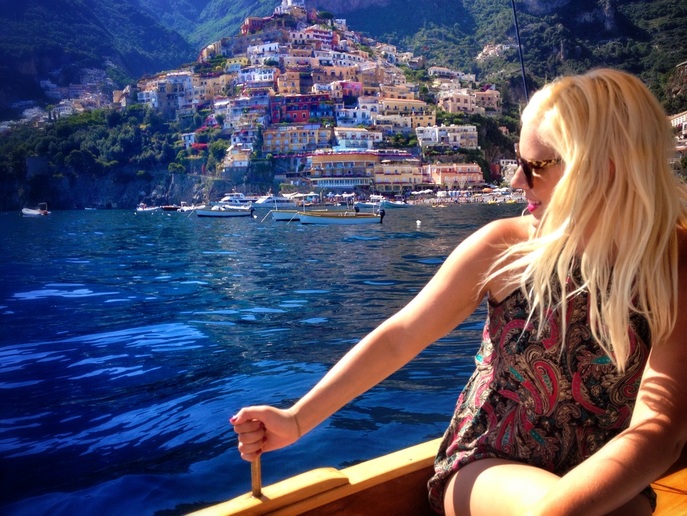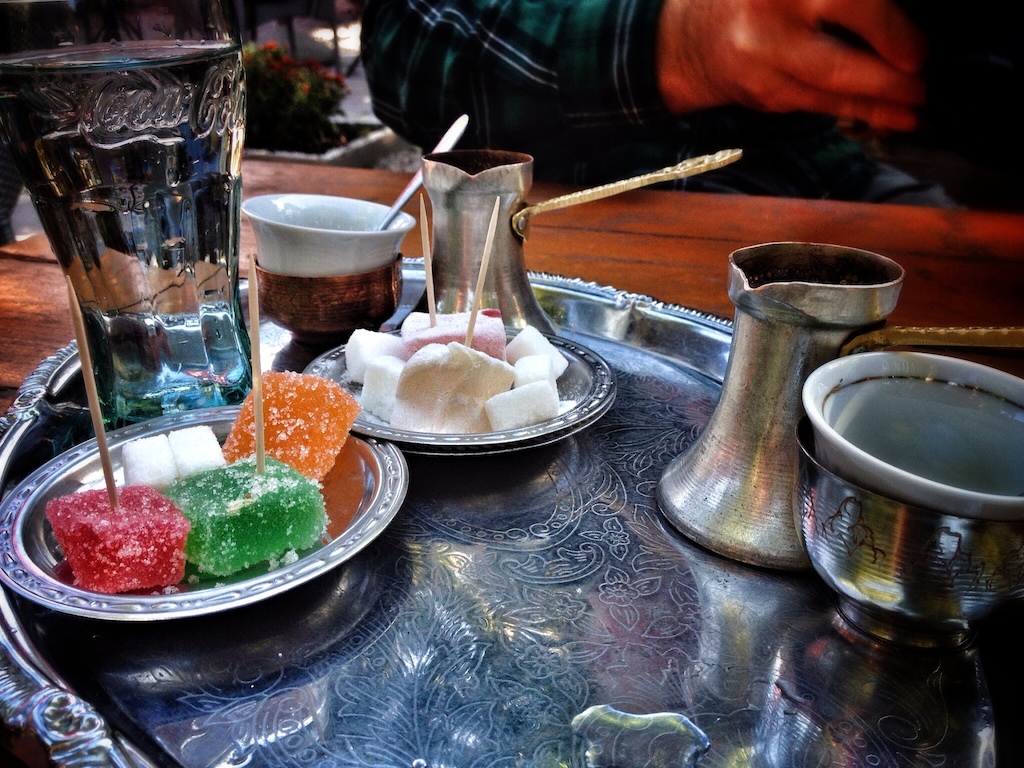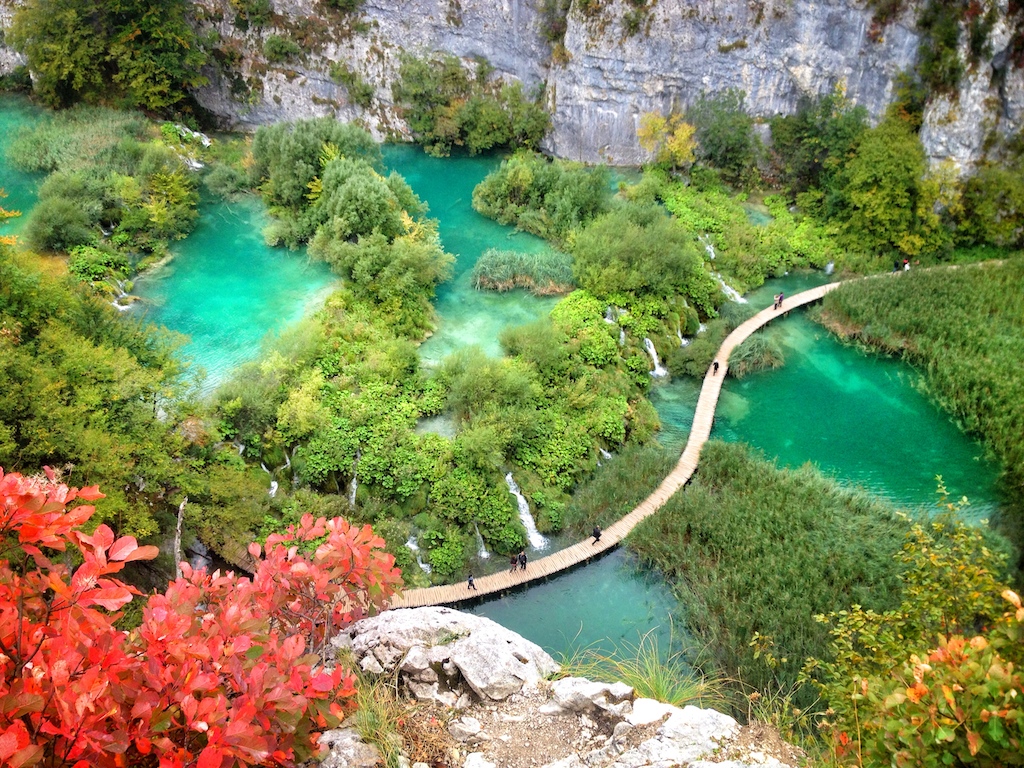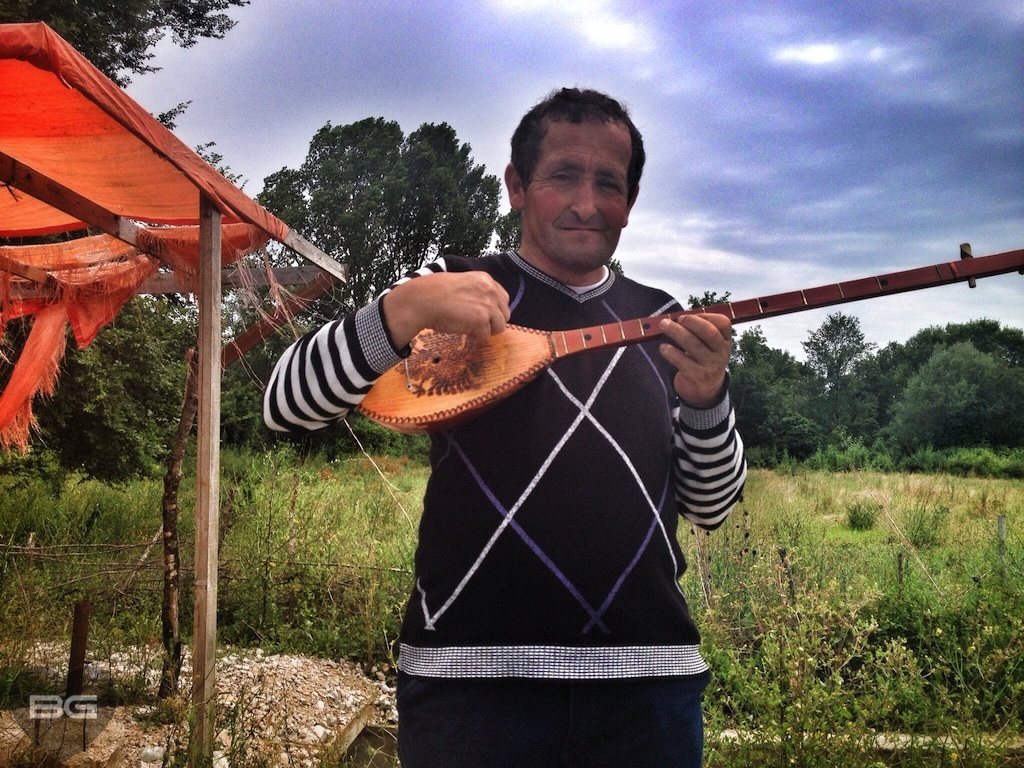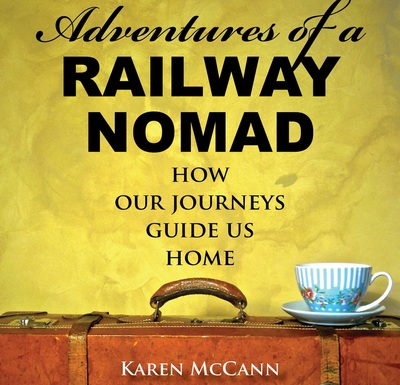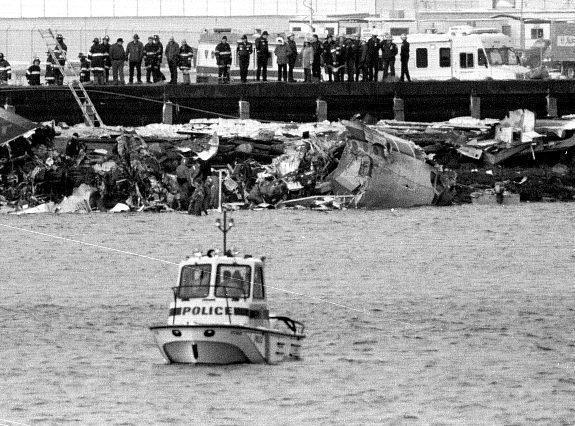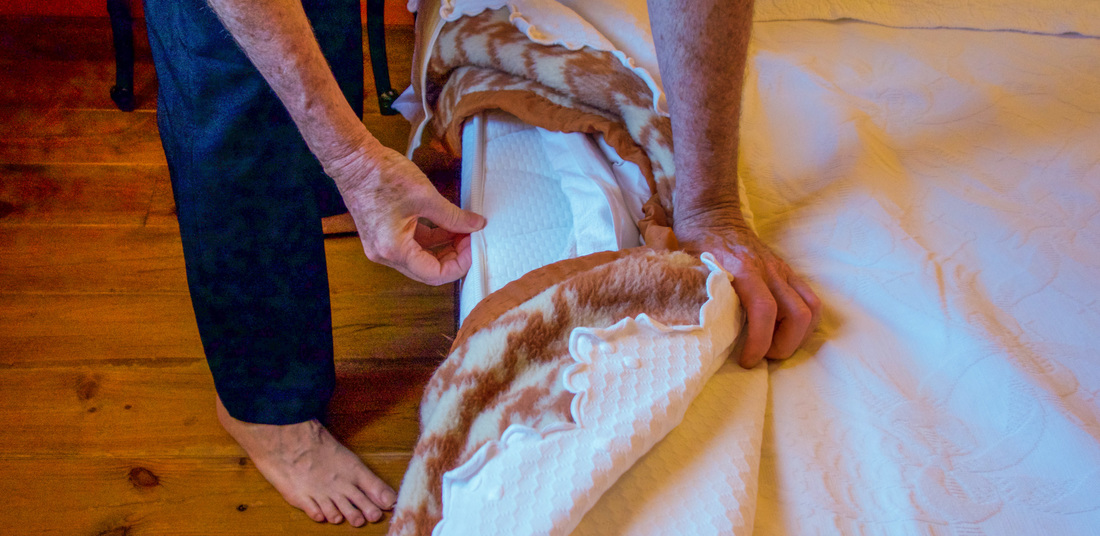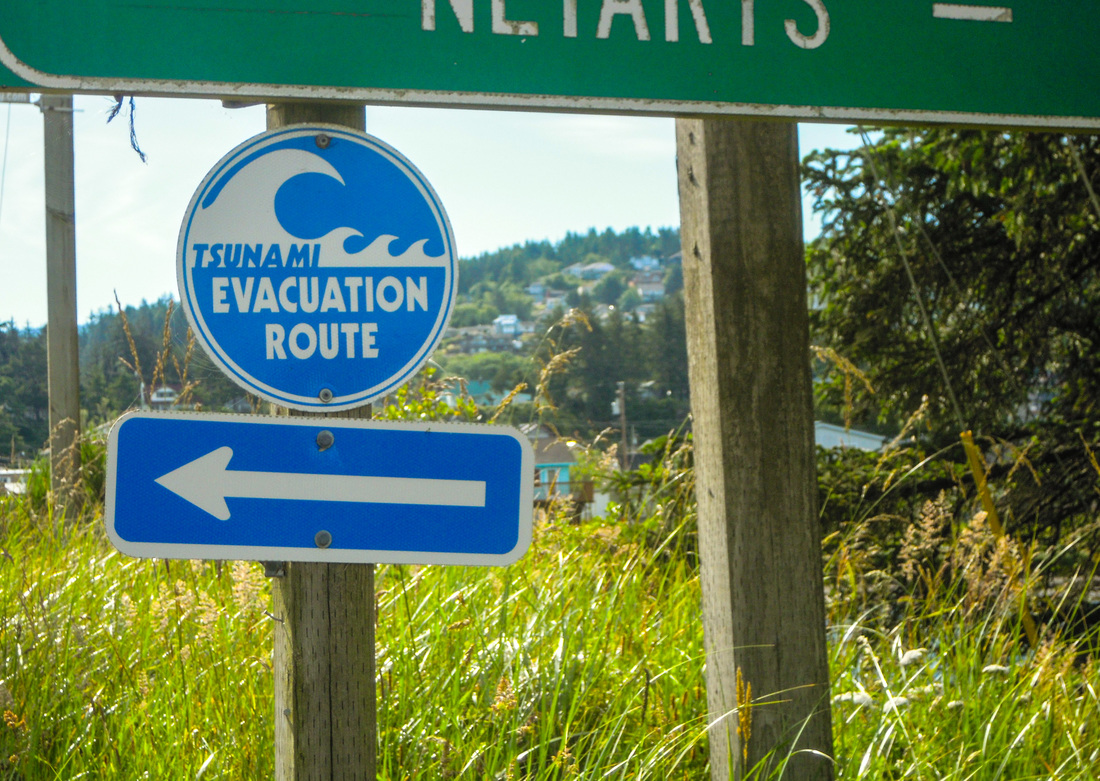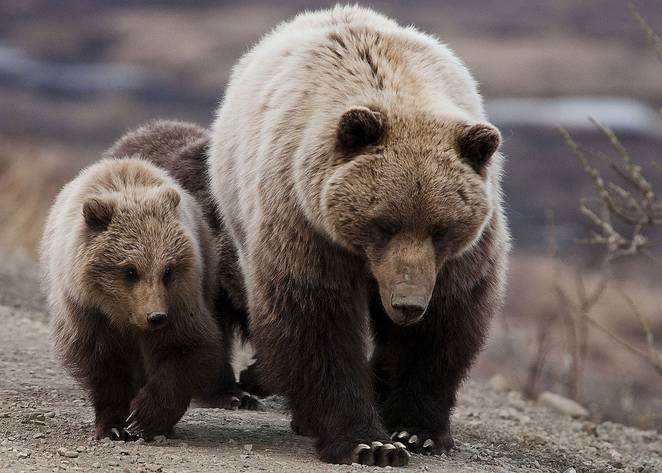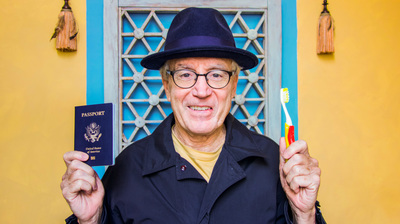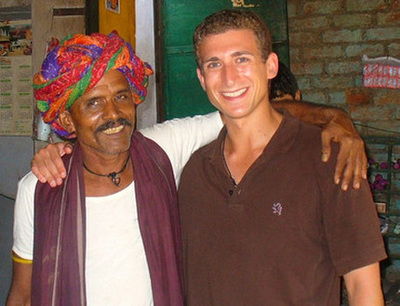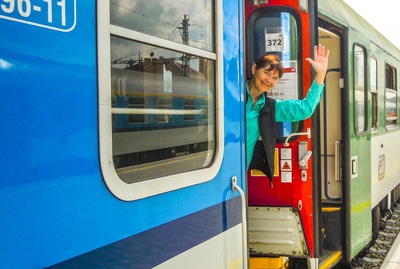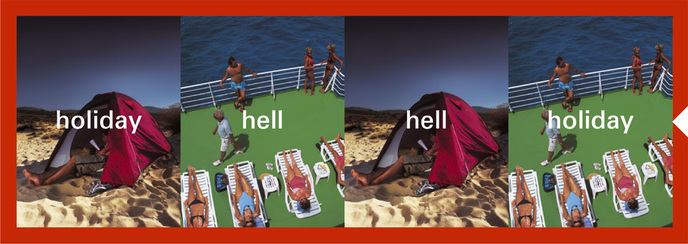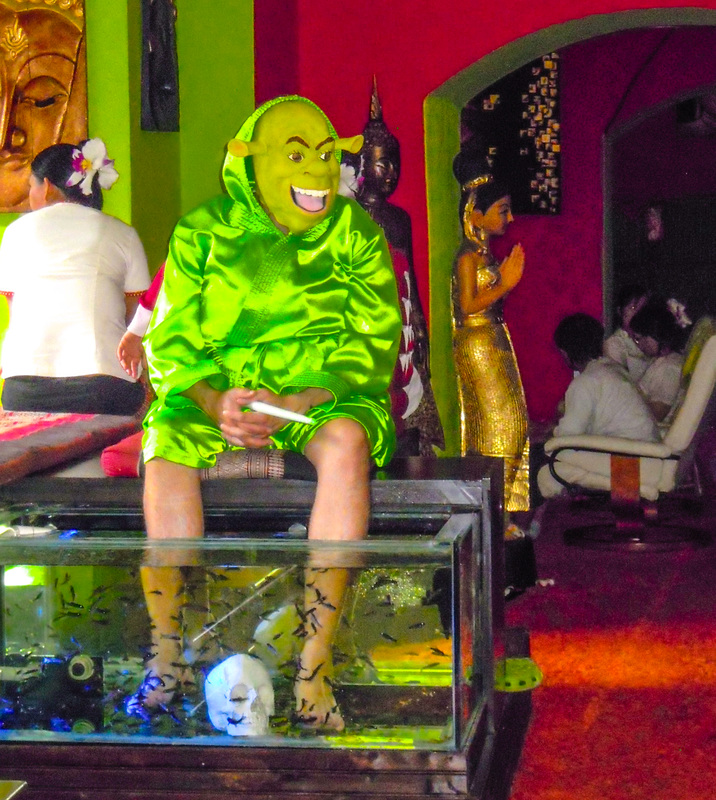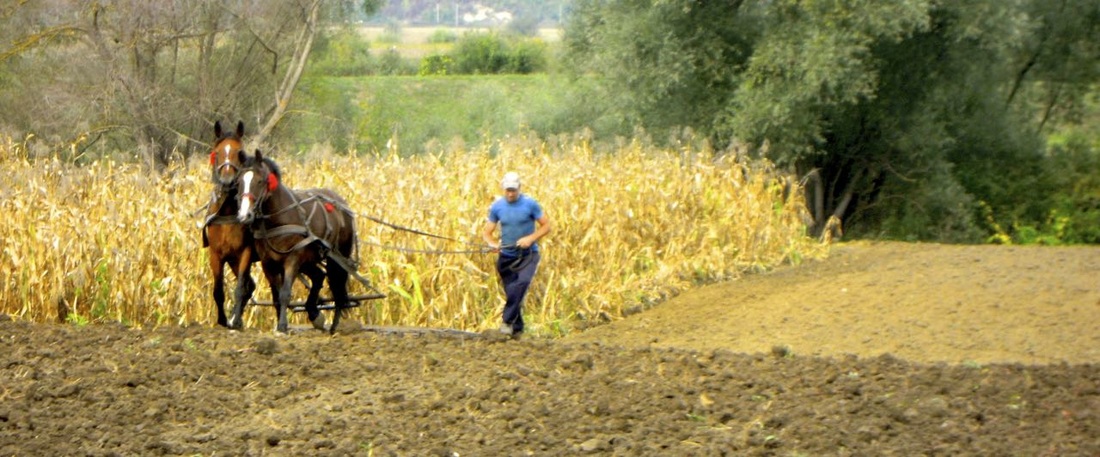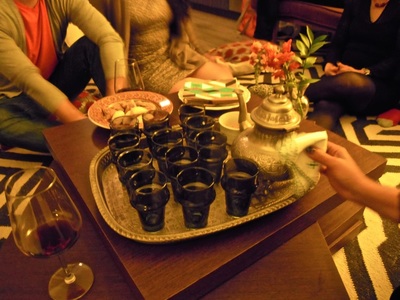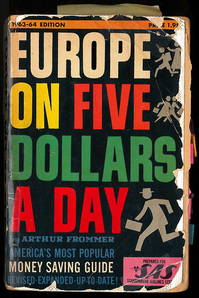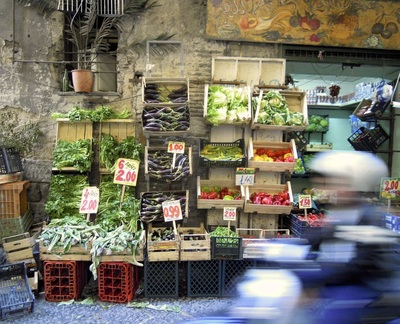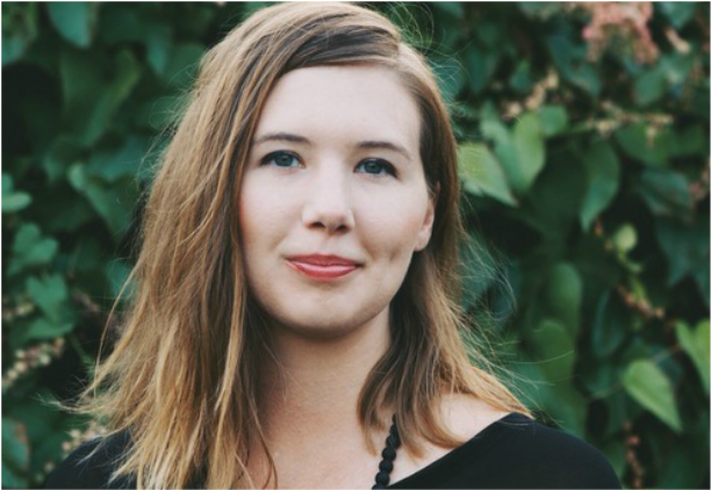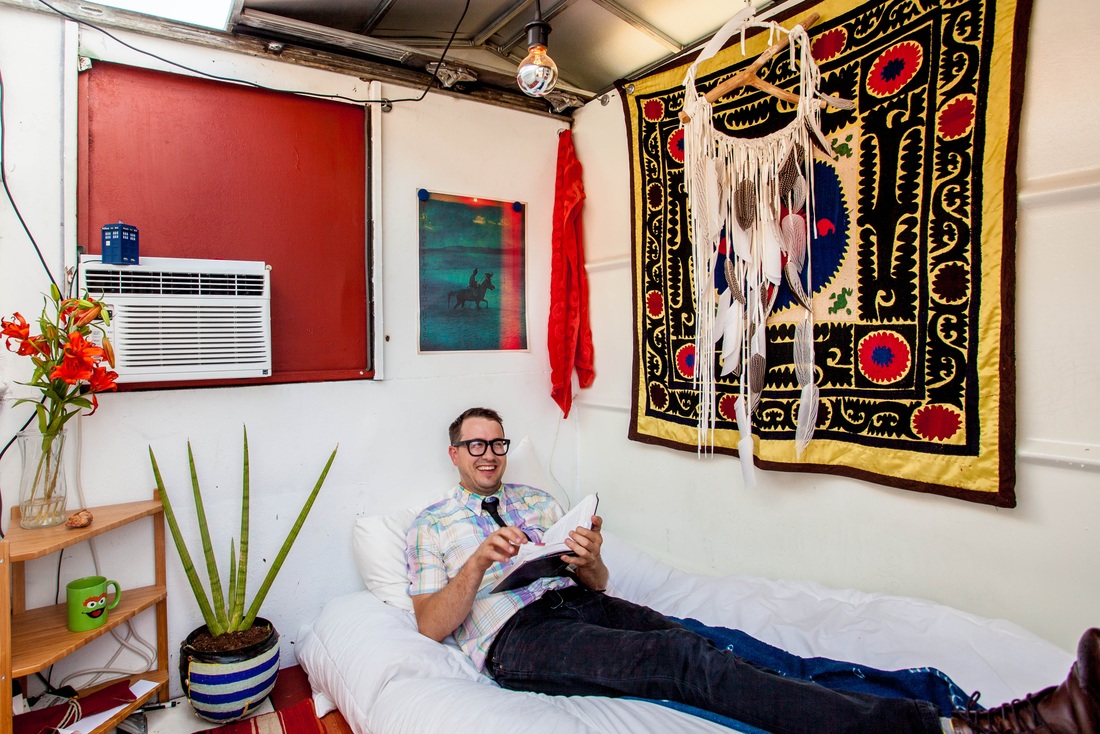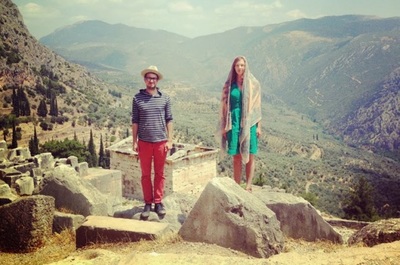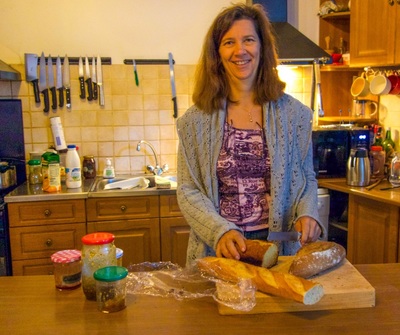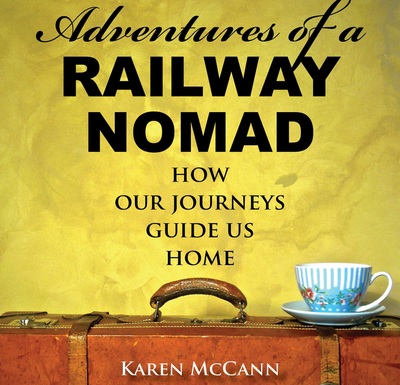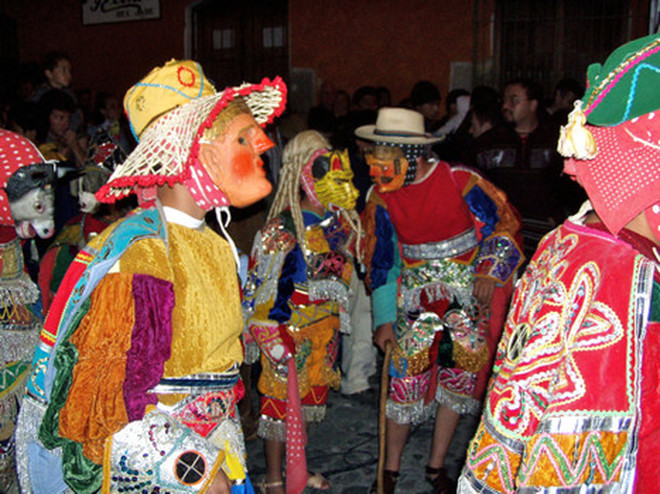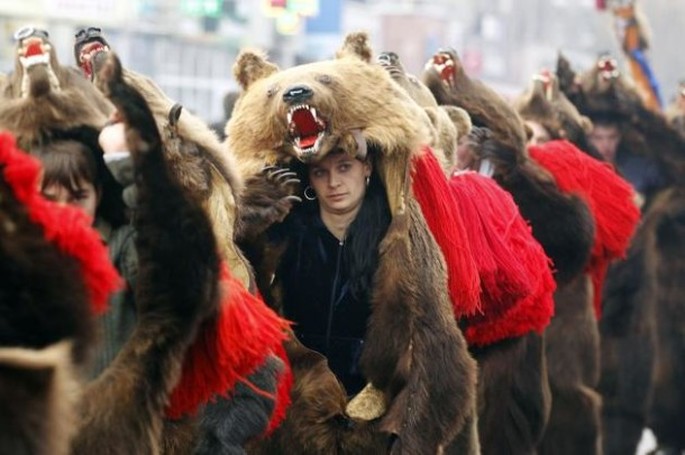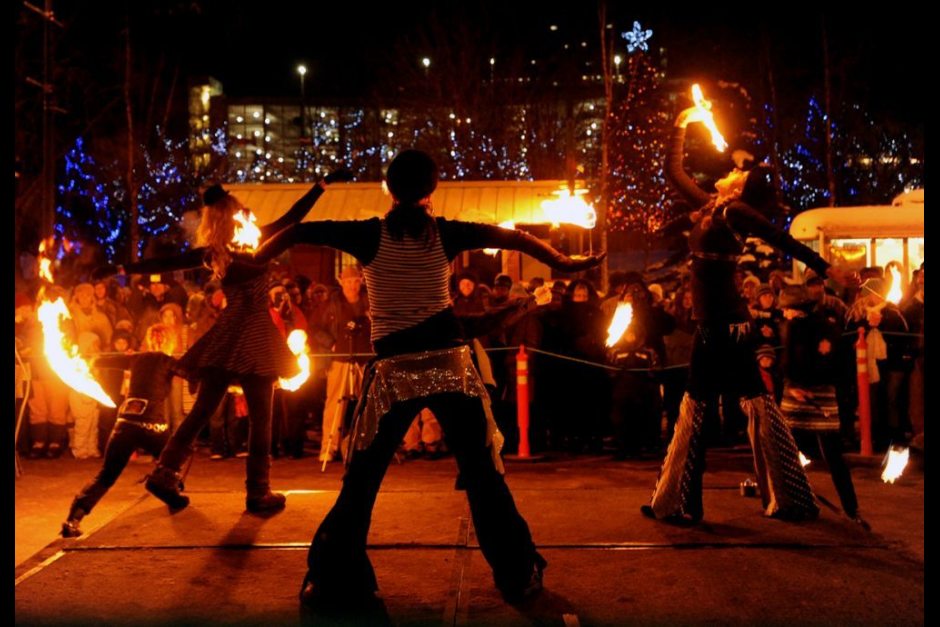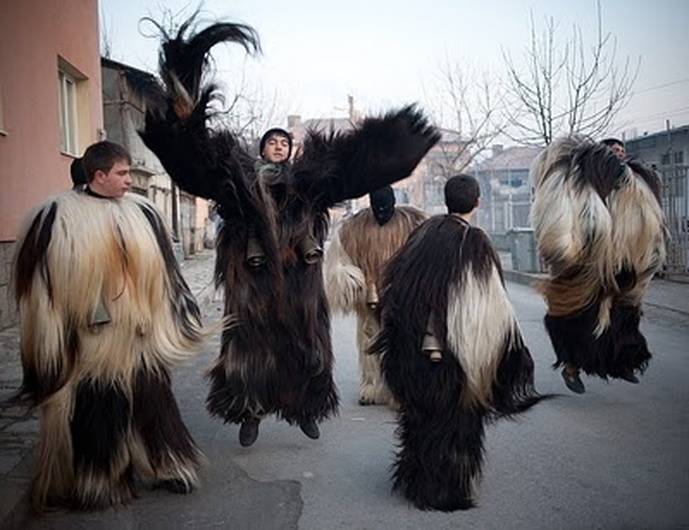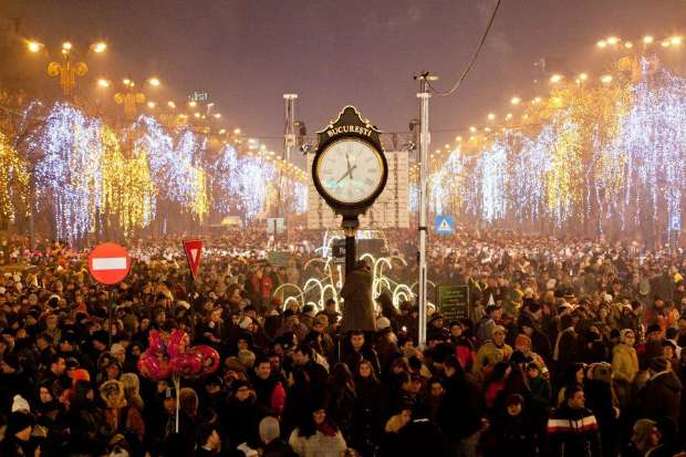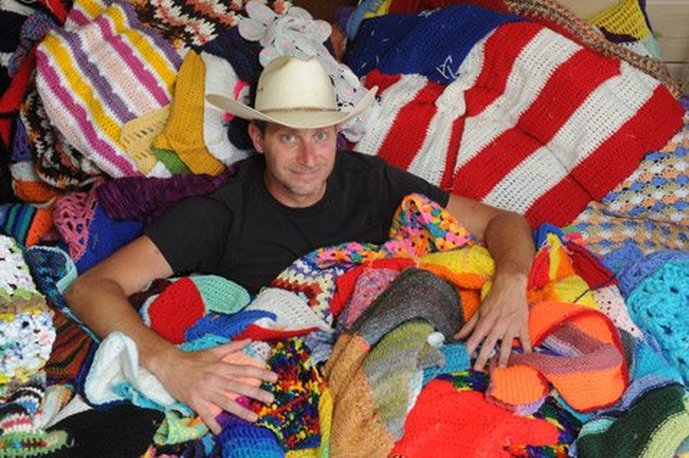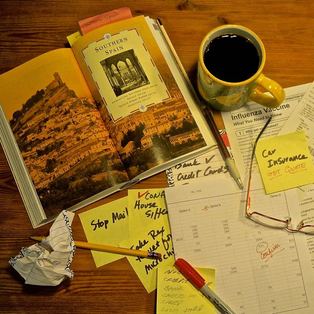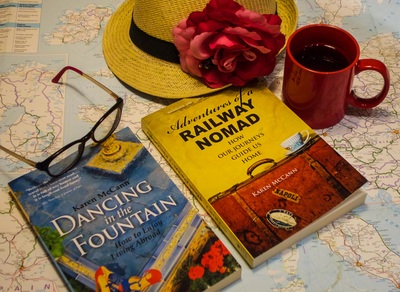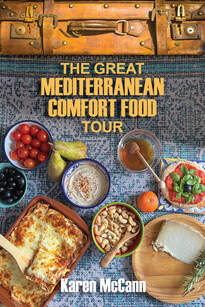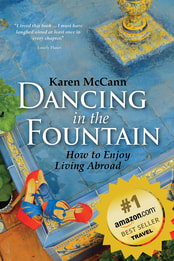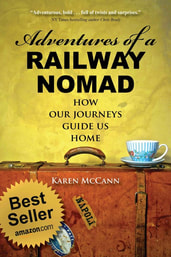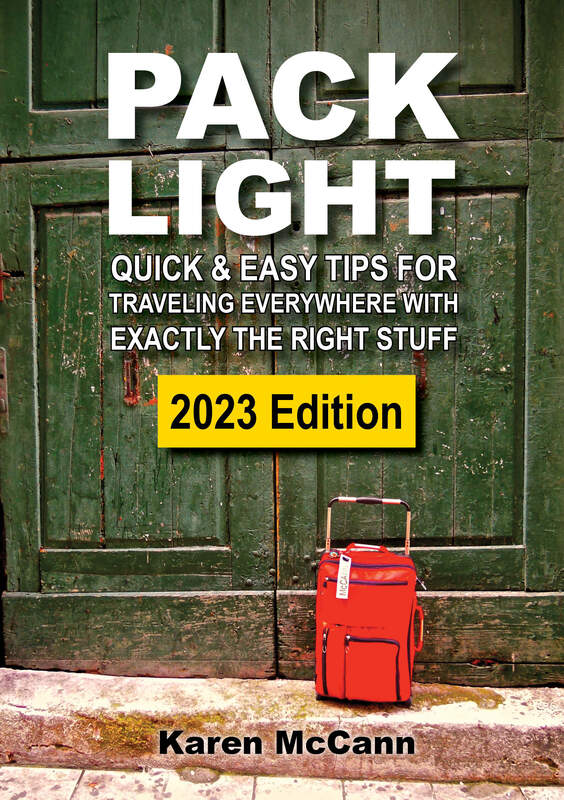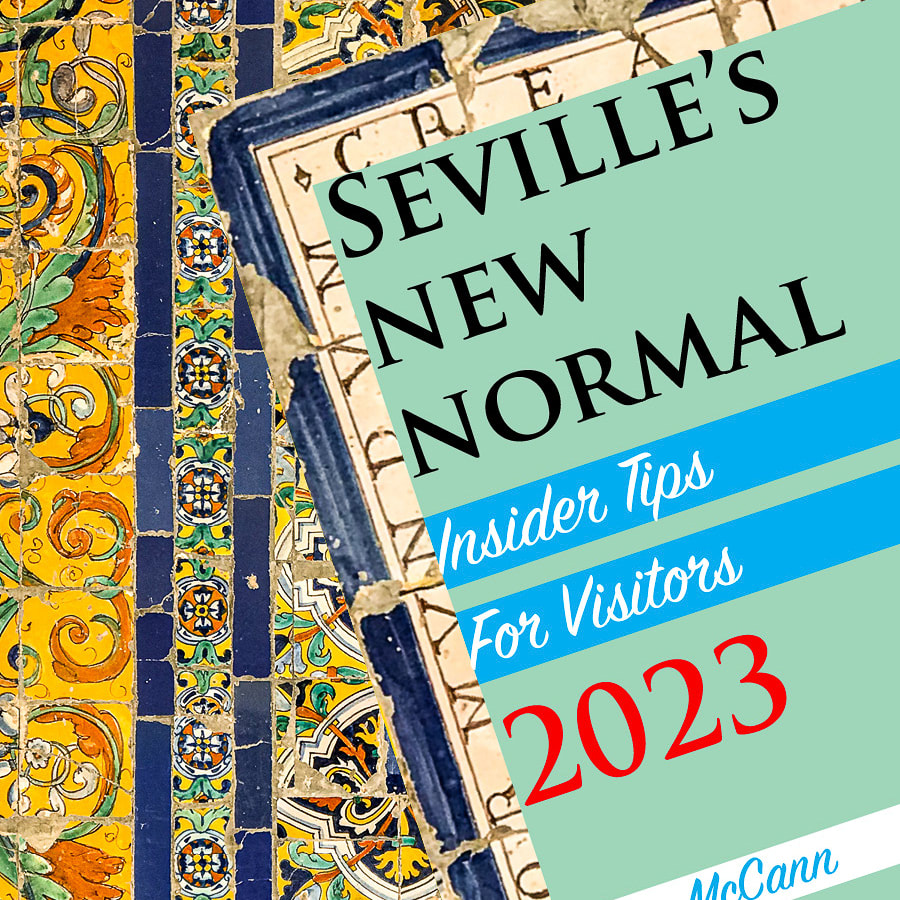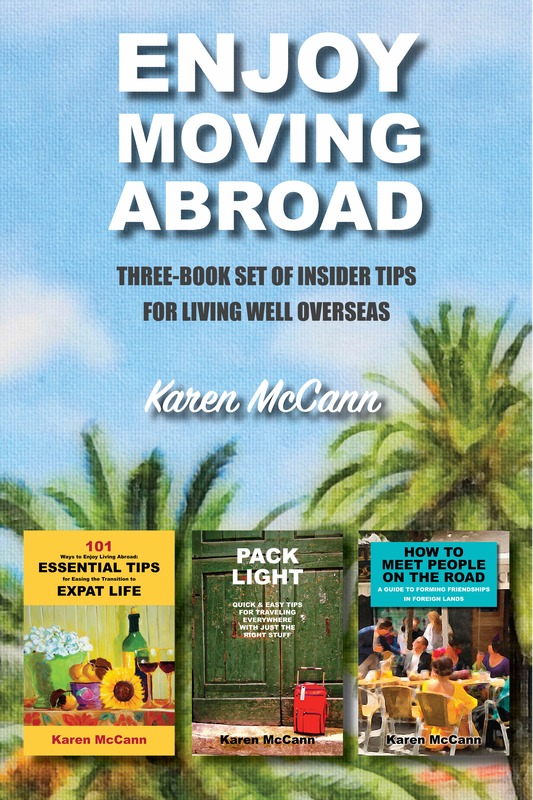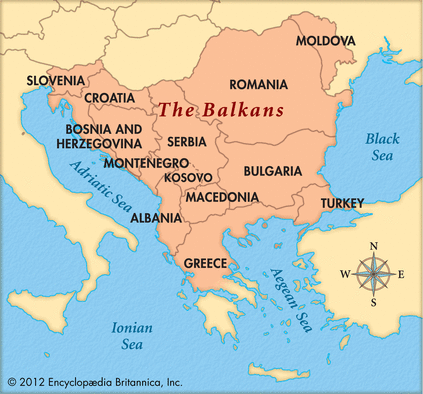 The thing I love about the Balkans is they’re not for everybody. If you’re looking for cookie-cutter experiences in predictably charming places where every waiter speaks English and all the food is familiar, you’ll have better luck elsewhere. The Balkans are consistently unpredictable. No one can even agree precisely which parts of roughly 13 countries in southeastern Europe the name applies to, and getting a grip on their history is like trying to explain the plot twists in the TV show Lost. However you define them, the Balkans are the hot, new frontier in offbeat travel destinations. When I discovered that a fellow Californian had moved to Kosovo and was running tours of the region’s roads less traveled, I wanted to know more. Larissa Olenicoff, who blogs under the name The Blonde Gypsy, was happy to answer questions about her new home. Why do you call the Balkans “the most exciting region in Europe?” It is the wild, wild southeast, with so many spots that have yet to be discovered or touched by mass tourism. Pretty much anything goes in most places in the region, and personally I find that extremely exciting. It’s raw and more authentic than most places I’ve been in Europe. And then there are the incredibly hospitable locals, the mystical natural beauty, tantalizing tastes, intricate history, and dynamic capital cities. You offer small group tours to travelers seeking authentic, non-touristy experiences. Like what, for instance? One of the more memorable exchanges one of my groups experienced was an impromptu tour of an abandoned bank/former sniper den in Mostar, Bosnia & Herzegovina given by a homeless man I know named Ljubo — somewhat of a local legend who unfortunately carried with him both physical and emotional scars from the war. What are some must-see Balkan cities? Sarajevo, Bosnia & Herzegovina is one of the most magical cities in Europe, encircled by mountains and retaining a very distinct east-meets-west vibe you have to feel to believe. Belgrade, Serbia has the region’s best nightlife. Ohrid, Macedonia sits on the one of the most beautiful lakes in Europe. Where have you found the most spectacular natural beauty? I’ve spent the most time outdoors in Bosnia & Herzegovina on the Via Dinarica trail so I’m quite partial to it, but I absolutely adore the mountains in Northern Albania, Southern and Western Kosovo, and Montenegro as well. Macedonia has really beautiful mountains along with several beautiful lakes. Croatia and Albania offer the best beaches in Europe. Let’s just say those fond of the great outdoors will not be disappointed whatsoever. You write enthusiastically about Georgian food, and I have to agree; it was one of the highlights of my visits to the Republic of Georgia back in the 1990s. What other regional dishes stand out in the Balkans? Lots of grilled meats, fresh salads (special shout out to the “shopska”), ajvar, burek. While each country has its own specialties as well, you can find all of those things in every country. Wish you wouldn’t have mentioned Georgian food (I miss it so much!). Your most popular post ever was “15 Things You Should Know Before Traveling to Albania.” In fact, it was how my husband first discovered your blog. Many of our friends think we’re nuts to be planning a visit there. How can I convince them otherwise? Honestly, the more time I spend in Albania, the harder it is for me to understand why people are so skeptical about it. For sure it can be complicated in terms of infrastructure and at times language, but it’s just as safe as every other European country and there is SO MUCH TO SEE there. It really has everything from beaches to mountains to history to amazing food and all at an unbelievably low price. How do travel costs in the Balkans compare with mainstream Europe? I'd say 1/2 to 1/3 cheaper (minus Croatia, parts of Montenegro, and Greece if we're including it). A glass of Balkan wine should never be more than two or three euros; just the other day I had one for 50 cents in Macedonia. You can eat a pretty solid meal for five euros and have a full-blown feast for 10 to 15 euros. It’s fantastic. You have said, “The Balkans are perhaps the final frontier for adventurous train travel in Europe.” Tell me more. Pros are definitely the scenery and rugged retro-ness; I love the feeling of stepping back into 1962. Biggest con is that trains here can take ages, sometime almost twice the amount of time as buses. Do you have security advice for visitors? Well, yes, you should definitely keep a close eye on your kidneys and other valuable organs at all times, never leave them exposed at any moment. JUST KIDDING. I have honestly felt safer traveling around the Balkans by myself than in any other place in Europe. But definitely be sure to fasten your seatbelt. The roads and the drivers can be kind of crazy — particularly in the mountains. Aside from that, just exercise the same caution you would anywhere else on the continent. Although I’ve lived in Seville for more than a decade, friends and family still ask when I’m coming “home.” Do you get this question? Yes, I do, though not as much as before. I think they are just so used to me being away now and equally used to the same answer I give them every time: when I'm ready. To all my readers: Have you visited the Balkans? Tell me about your experiences! YOU MIGHT ALSO ENJOY HOT NEWS! Rich and I are heading off on another adventure, this time to Cuba. The bad news: the Internet connection there is super fragile and I won't be posting on this blog for a few weeks. The good news: we're heading to Cuba!!!! I'll be back in touch late in February, with stories, photos, videos... Wish me luck!
9 Comments
“And so when the plane started to break apart,” my friend told me, “I said to my husband, ‘Unbuckle your seat belt.’ Because we don’t know how to swim, and I knew we had to jump out before the plane was over water.” This happened back in the nineties, and I’m still gobsmacked by the story. This woman, who had no special training, had the astonishing presence of mind to analyze the various dangers, act counter-intuitively regarding the seat belt, get herself and her husband to the gap where the plane was ripping in half, and jump. They landed on rocks at the water’s edge, breaking bones but surviving when many others did not. Until that moment, I had always considered surviving a plane crash — and similar catastrophic events — to be a matter of luck. And often it is. But having a cool head and a few savvy travel skills up your sleeve can make a lifesaving difference when all hell is breaking loose. Here are tips for coping with some of life’s nastier surprises, drawn from experts and my own experiences. 1. Surviving a Plane Crash The odds are already excellent. The likelihood of you becoming an air fatality is just one in 4.7 million; 95.7% of people survive an air accident, and 76% of passengers make it through even a serious aviation disaster. Studies suggest you want to fly further back on the plane (yep, in economy), learn the proper crash position, and leave all your stuff behind in the crucial 90 seconds after you’ve hit the ground, when you need to be running for the exit. Read more. 2. Jumping from a Moving Train If a collision or derailment seems imminent, move toward the back of the train and jump off at a perpendicular angle. Ideally wait until a curve slows the momentum, you’re passing over water, and someone standing on the bank has an iPhone ready to record your dramatic leap to safety. Read more. 3. Saving a Life with the New, Compression-Only CPR If your travel companion’s breathing or heartbeat stops, be ready to apply the new form of cardiopulmonary resuscitation, which no longer requires mouth-to-mouth contact. Basically you compress the chest at a steady 100 beats per minute; experts (and I am not making this up) recommend using the song “Staying Alive” by the Bee Gees to ensure the right rhythm. As an added benefit, the sheer annoyance of hearing you hum this disco hit under your breath, over and over, will usually bring the person back to consciousness rapidly in order to beg you to shut up. Read more 4. Finding Bedbugs Before They Find You As you may have heard, the bedbug apocalypse has begun. These hideous parasites have become an unstoppable, worldwide menace since the ban on DDT. Nowadays, Rich and I perform a vigorous bed-bug check whenever we're away from home. Read more 5. Reacting Quickly in a Tsunami "It's not a matter of if but when," said our host at the B&B on the Oregon coast. “Memorize the tsunami evacuation instructions I left beside your bed.” Rushing back to my room, I learned (you might want to write this down) that in a tsunami, experts advise heading inland and to higher ground. Well, duh! Read more 6. Staying Safe in an Earthquake In 2014, I was in a 20-second earthquake that jolted me out of bed, made my possessions do the jitterbug, and caused a billion dollars in damage, much of it, tragically, to bottles of wine in Napa Valley. Fortunately, as a fourth-generation Californian, I was well trained in what to do when the earth moves under your feet. Read more 7. Fending Off a Bear Attack Fans of the film Revenant, and members of my family who vacation annually in the high Sierras, take note: the key is to ID the beast. If it’s a brown or grizzly bear, play dead. If it’s a black bear, do not play dead; flee or “fight back with any object available.” Frankly, I’m not picturing this going well for me. Does that 250-pound animal looming out of the shadows look black or is it more of a dark brown? What object do I have on hand to fight back with? My iPhone? Read more 8. Preparing for the Zombie Apocalypse Do I really believe that flesh-eating zombies are about to devastate the planet? No. But a few years ago, savvy emergency planners learned that by framing basic survival tips as tricks for combating the undead, they get your attention fast. Articles and workshops on zombie preparedness teach us about self-reliance, emergency first aid, and helping our fellow humans. And those are handy skills to have in any disaster. Read more Have you survived a disaster on the road? Any advice you'd like to pass along? YOU MIGHT ALSO ENJOY 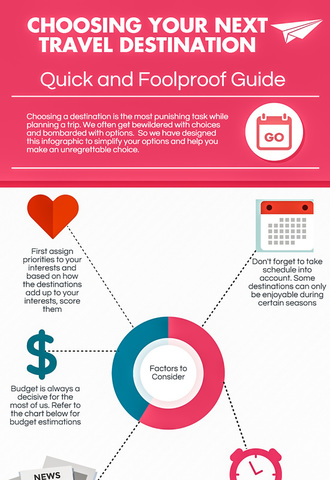 Skimming an infographic about selecting a vacation spot, I did a double take when I saw Step 1: “First assign priorities to your interests and based on how the destinations add up to your interests, score them.” To me, that was like saying, “Want to become a real estate mogul? First, make a million dollars. Next…” Whoa, there! I think we’d better slow down and unpack Step 1 a bit before moving on. Few of us start with a clear idea of what we actually hope to get out of a trip. Unless we’re running through a personal checklist, such as photographing America’s national parks in alphabetical order or playing Scotland's top 10 golf courses, there are usually lots of interests and priorities jostling for attention. Beautiful scenery! Great food! Congenial companions! Social media bragging rights! The list goes on and on. “The business of going on holiday,” says Alain de Botton, “is rarely examined from anything other than a bluntly practical point of view. We hear no end of talk about where we should go. What gets less attention is why.” So perhaps a more useful Step 1 would be identifying the reason we’re packing a bag and walking out our front door. To do that, we’ll want to consider what we find genuinely satisfying — and what we don't. 1. What activities/trips have left you feeling great in the past? If none, which have made you feel the most terrible? Say your travel companion keeps mentioning Hawaii. How do you feel about long, lazy days on the beach? Are they likely to restore your deepest sense of wellbeing? Bore you to tears? Or — and this one comes from personal experience — be spent trying to ignore your dermatologist’s voice whispering in your ear, “More sunblock! Put your hat back on! In fact, cover every inch of skin with 100+ SPF protective clothing! Do it now!” Honesty counts. Are you really excited about touring the Pro Football Hall of Fame or secretly longing to hit Vegas for the sci-fi convention in your Captain Kirk uniform? 2. What kinds of people would you most like to connect with on the journey? Do you enjoy hanging out with wildcard nomads in communal lodgings such as hostels and Couchsurfing sites? Want to rub shoulders with the rich and famous in trendy resorts? Find yourself drawn to local families running traditional farms and cottage industries? Some of my fondest travel memories involve chance conversations in settings ranging from Bulgarian hostels to Bhutanese monasteries to up-market Transylvanian guest houses. I find that I am happy in just about any environment that has oddball characters who are willing to talk. Rich and I are going to Cuba in February, and we were thrilled to learn our hosts have arranged for us to participate in a local dominos tournament. How are my dominos skills? Abysmal. But who cares? 3. How do you want this trip to change you? For some, it’s enough just to feel rested. For younger travelers, the goal may be to become a worldly-wise, unutterably cool sophisticate and sexual virtuoso — or at least to come back with a few stories and selfies that suggest this miraculous transformation occurred. For me, the best result is enjoying the zingy sense of being more fully alive, connected to the word, and present to the moment. At journey’s end, I want to walk back through my front door and look at my surroundings and my life with fresher, more appreciative eyes. 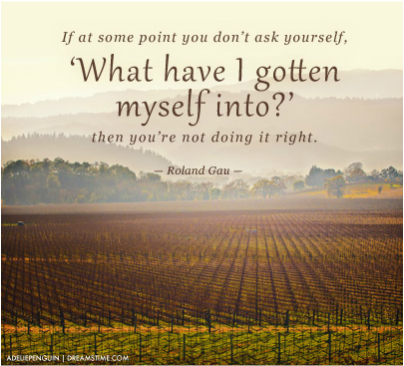 Of course, you might not want to bother with any of this soul-searching; in fact, you may already be Googling articles with titles like "The 10 Hottest Vacation Destinations for 2016!" But I find that kind of one-size-fits-all, ready-shoot-aim tourism seldom has optimal results. I want to come home with more than a suntan (which in my case is usually a blend of sunburn and heat rash), a depleted wallet, and a vague sense of letdown. We all know there’s no such thing as a perfect vacation; every trip worth taking involves mysteries, surprises, and the peculiar challenges Kurt Vonnegut calls “dancing lessons from God.” But it is this very sense of mystery and suspense that keeps us turning the pages of our own travel journals, eager to see what’s going to unfold in the next chapter. And sometimes, if we’re very lucky, we catch a glimpse of what the poet Rumi meant when he said, “Travel brings power and love back into your life.” And that is a worthy objective indeed. What helps you choose a travel destination? Any thoughts on what makes for a successful or a disastrous holiday? I'd love to hear from you! YOU MIGHT ALSO ENJOY Rich spent 20 years bringing up the loony idea of luggage-free travel, but it was Clara Bensen who finally convinced me to try it. She and her not-yet-officially-a-boyfriend Jeff explored the parameters of their unconventional relationship during three weeks of Couchsurfing around Europe with nothing but the clothes on their backs and, in Clara’s case, a small purse with a few necessities. Reading her insightful, beautifully written article about their madcap adventure convinced me to try my own luggage-free journey, although — call us a bit less crazy — Rich and I stayed in hotels and took the train instead of hitchhiking. Clara's article went viral and grew into a book called No Baggage: A Minimalist Tale of Love and Wandering. The book came out on Tuesday and I'm just finishing the last chapter; it's been a hell of a ride. I’m not surprised there’s a movie deal in the works. I was lucky enough to arrange an interview with Clara so I could find out more about her story. 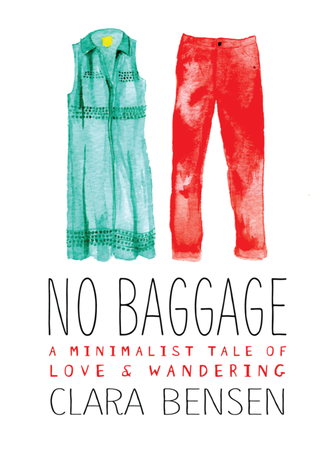 Traveling without luggage, what did you miss most? People are often incredulous when I say I didn’t miss much of anything — I was incredulous too! I walked into the airport mentally prepared to be uncomfortable for the next 21 days. As it turned out, the things I missed were minor or abstract: convenience (washing clothes in the sink every night requires time and a bit of foresight) and certainty (I wasn’t always sure where I’d be sleeping or when I’d next have a chance to get cleaned up). I didn’t bring toothpaste, thinking it would be readily available — that was definitely a mistake. Your no-baggage journey took place after your “quarter-life meltdown.” How did the journey help you heal? I spent the two years before the No Baggage trip in a state of severe clinical anxiety. Prior to my recovery, there’s no way I could have handled the psychological uncertainty of traveling with no baggage or plans (and some wildcard guy I hardly knew). Agreeing to the journey was, in many ways, a celebration of how far I’d come. It wasn’t that I no longer experienced anxiety — I did and still do — it was more that I was confident I could have a meaningful, adventurous life in spite of fear. You and Jeff have taken five No Baggage-style trips. How do you meet people? How have you dealt with any safety/security issues? We talk to whoever is around. On our second No Baggage trip to South America, we hit it off with the Ecuadorian guy sitting next to us on the plane. It was Christmas Eve and when our flight was delayed he insisted on taking us back to his family home for the night. We ended up spending Christmas morning in Quito, drinking homemade fruit smoothies with a big family we’d never met Of course, we don’t blindly accept all invitations. Both Jeff and I are skilled at reading people and environments. If something feels off, we leave. Gut and intuition go a long way in gauging safety — so does local knowledge. Last year we traveled to visit Mesopotamian ruins in south-central Turkey. We were only an hour or two from a Syrian border town under ISIS siege. At each stop we consulted with locals and online message boards about what was going on and where it was safe to head next. Our trips convey a sense of daring, but behind the scenes we’re evaluating risk just like other experienced travelers. 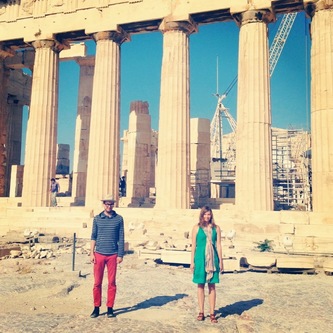 I have this saying: “When we set out in search of adventure, what we really discover is ourselves.” What did you discover about yourself during the trip? I love your quote! I agree that the challenge of adventure is one of the quickest ways to find out about yourself and whomever you’re traveling with. The disorientation of a new place has a way of stripping you down to your raw, unedited self. Setting out on the No Baggage trip taught me that I am capable of flowing with the moment and finding my way in situations with low levels of certainty. And of course, you always hear anecdotes about how it’s experience — not consumerism — that matters, but those 21 days illuminated that truth in a really tangible way. On our first trip, Jeff and I wrestled with the balance between commitment and freedom, and three years later our views on the subject are still evolving. It helps that we’re both comfortable with paradox. We’re able to express deep and consistent support towards each other while also expressing the knowledge that life is complicated and people change (whether they’re wearing rings or not). The perceived uncertainty can be frightening but it also infuses our relationship with a constant influx of fresh energy. We never take each other for granted and it shows. How did Jeff living in the dumpster affect your relationship? Jeff lived in a dumpster for a year (we live together at the moment). It was an adjustment at first (ie. swinging like a chimpanzee through his “front door”), but it’s funny how quickly the human mind can adapt to an unusual situation. After a few months we both referred to the dumpster as his “house.” I’m really into surrealism, so — aside from a few inconveniences — I found the whole experiment stimulating and funny. 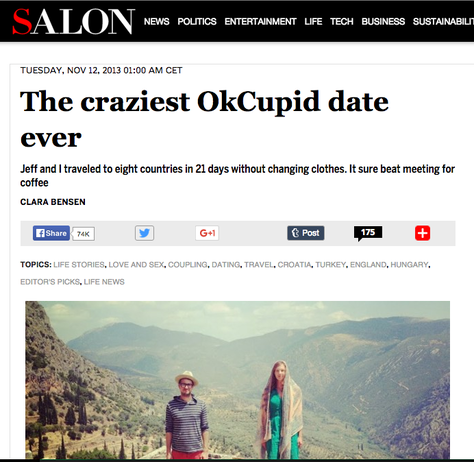 How are you feeling about a movie being made about your No Baggage trip? What actor would you like cast as Jeff? The public response to our trip has been so surprising. I didn’t have any intention to write about the experience. The idea didn’t occur to me until Jeff casually mentioned it six months after the trip. I pitched an article to Salon, they published it, the story went viral, and my life changed overnight. The book deal, the film screenplay, standing in an elevator with Barbara Walters…it mostly doesn’t seem real. In the interest of staying sane I don’t usually let myself think about who should play Jeff (or myself). He always says Denzel Washington. What are you working on now? Now that No Baggage is launching into the world, I’m breaking ground on a new tongue-in-cheek memoir about growing up as a homeschooled kid in a fringe Christian evangelical movement. I’m really excited to delve into this sub-section of American culture to try to understand its psychological appeal. YOU MIGHT ALSO ENJOY "Youth is when you're allowed to stay up late on New Year's Eve,” wrote columnist Bill Vaughan. “Middle age is when you're forced to!" It’s easy to get blasé about ringing in yet another January. By now we’ve all learned that few, if any, New Year’s celebrations live up to our Hollywood-fed expectations for a glamorous, romantic, life-changing night with sentimental music and great clothes. But New Year’s doesn’t have to be underwhelming, especially if you are fortunate enough to be on the road. Other cultures enliven the evening with their own brand of lunacy and excess, which can be very entertaining when you have a front-row seat for the show. Research your destination in advance. For instance, if you’re heading to Havana, it pays to know that partying Cubans take a break at midnight get rid of the old year’s bad juju by flinging a bucket of water out the window. Look sharp, pedestrians! I’d say avoid the streets altogether, but another popular custom there is to walk around the block with a suitcase, waving to neighbors, to boost your chances of traveling in the coming year. Of course, if you’re a visitor, you’ve pretty much got that one sewed up already. Splurge on a party organized by a bar, restaurant, hotel, or night club. Go online (well in advance, if possible) to seek out a convivial venue where you’ll be served traditional fare and invited to join in whatever midnight customs are honored in that corner of the world. You may not get to throw a bucket of water out the window, but if you’re in, say, Mexico, you might be served a round loaf of sweet bread with a coin or charm baked in it; getting the charmed slice ensures a year of good fortune. Mexicans cultivate more good luck by decorating with red for enhancing love and lifestyle, green for financial success, and white for health. Negative aspects of the old year are written down and tossed into the fire so you’ll be free of them in the future. Find a TV. If your mood and/or budget don’t extend to organized festivities, simply planting yourself in front of a TV or streaming a local broadcast on your tablet will put you on an equal footing with the majority of home-based merrymakers in your vicinity. I love the Albanian tradition of watching comedy shows in the run-up to midnight; they believe you should always enter a new year laughing and full of joy. Russians, on the other hand, strike a sober note. At 11:55 all televisions broadcast a pre-recorded message from the Russian president listing the government’s achievements during the year, followed by 12 seconds of silence so everyone can make resolutions — presumably vowing to do more for the State in the year ahead. Talk about a buzzkill! Head to the main plaza. Just about everywhere, people gather in public spaces to indulge in rowdiness, alcoholic beverages, and small, noisy explosions; you’ll often find parades, concerts, and costumed revelers adding to the commotion. In Prague, firecrackers start and noon and build to a crescendo of cacophony by midnight, at which point they are joined by fireworks you can watch from Lesser Town Square or the Charles Bridge. Resist the impulse to make resolutions. Actually, make all you want, because chances are you won’t be keeping them anyway. Success rates in the US are just 30% if you’re in your twenties and drops to a dismal 14% if you’re over 50. There are exceptions, notably cognitive scientist Stephen Duneier. In 2012, he committed to 12 Learning Resolutions and 12 Giving Resolutions. He performed at comedy clubs, flew a helicopter, built homes for families in need, climbed icebound waterfalls, had a root canal without anesthetic, learned German, read 50 books, ran a half marathon, fostered a pit bull, took up drumming, unicycling, hiking on stilts, ballroom dancing, skydiving, aerial acrobatics… I could go on, but aren’t we all intimidated enough? Get lucky. Here in Spain, everybody knows that if you wear red underwear and consume 12 grapes as midnight strikes on December 31, you’ve done everything necessary to ensure good fortune for the year ahead. Yes, it’s that simple! If you really want to hedge your bets, you can also throw a bucket of water out the window, burn a list of bad juju from the past, and watch comedy shows. And to ensure yet more luck, don’t make any resolutions to climb icy waterfalls, hike on stilts, or have a root canal without anesthetic. I think we can all agree that any 12 months that does NOT include those things is well on its way to being a very happy and successful year. Have you encountered any zany, wonderful, or curious customs for celebrating New Year’s? I’d love to hear about them! YOU MIGHT ALSO ENJOY |
This blog is a promotion-free zone.
As my regular readers know, I never get free or discounted goods or services for mentioning anything on this blog (or anywhere else). I only write about things I find interesting and/or useful. I'm an American travel writer living in California and Seville, Spain. I travel the world seeking eccentric people, quirky places, and outrageously delicious food so I can have the fun of writing about them here.
My current project is OUT TO LUNCH IN SAN FRANCISCO. Don't miss out! SIGN UP HERE to be notified when I publish new posts. Planning a trip?
Use the search box below to find out about other places I've written about. Winner of the 2023 Firebird Book Award for Travel
#1 Amazon Bestseller in Tourist Destinations, Travel Tips, Gastronomy Essays, and Senior Travel
BLOG ARCHIVES
July 2024
CATEGORIES
All
|
